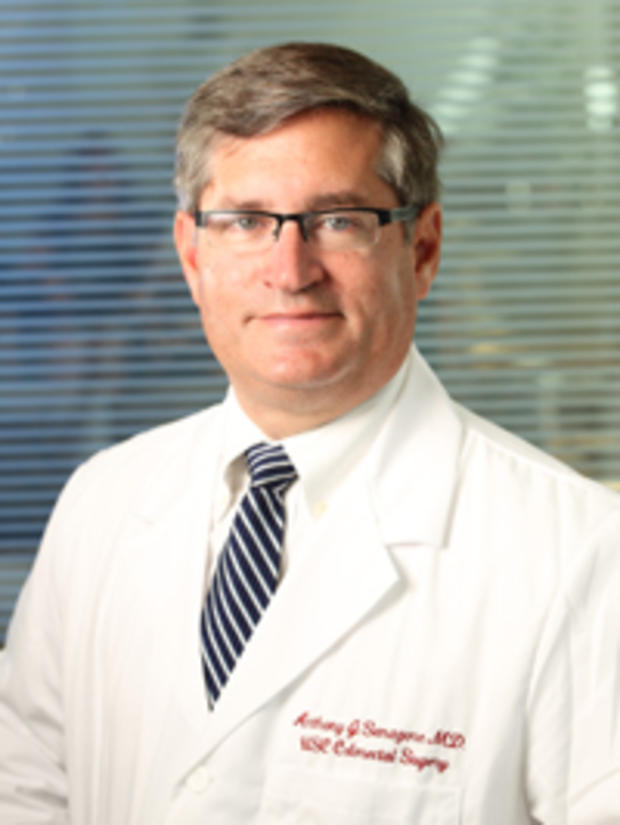Minimally Invasive Surgery Offers Faster Road to Recovery
The following content is provided by Keck Medical Center of USC.
______________________________
At Keck Medical Center of USC, Minimally Invasive Surgery Offers Faster Road to Recovery for Colorectal Cancer Patients
Colorectal cancer is a sobering diagnosis, but thanks to modern techniques offered by skilled and innovative faculty physicians at the Keck Medical Center of USC, the road to recovery is easier for most patients.
According to Anthony Senagore, M.D., professor and chief of colorectal surgery at the Keck Medical Center of USC, minimally invasive surgery is an option for a high percentage of patients.
"About 80 percent of patients are candidates for laparoscopic surgery," he said. "And the recovery is far less stressful than open surgery."
Colorectal cancer is the third most commonly diagnosed cancer and third leading cause of cancer death in American men and women, according to 2011 statistics from the American Cancer Society.
Laparoscopic surgery for colorectal cancer involves making three or four small cuts in the abdomen, each about the circumference of a fountain pen, and inserting instruments to surgically remove the tumor.
The tumor is then examined to determine the stage, and whether the patient will need to follow up with chemotherapy, said Senagore, who was among some of the first surgeons to perform this surgery when it was introduced more than 20 years ago.
"The wounds are smaller, there are fewer risks and the patient recovers faster," he said. "Most patients are in the hospital for one to three days, and back to full activity in a week to 10 days."
Frank Castro, one of Senagore's patients, underwent a laparoscopic bowel resection procedure along with a liver procedure in late 2011 after cancer was discovered during a colonoscopy.
"I knew I had to get in quickly and get it done," he said. "I work in the medical field, so I know what's involved. Dr. Senagore was very accommodating and professional. He walked me through the process, then he got in, got the tumor out and I got into chemo. Now I'm completely healed and glad to be back at work."
Senagore's specialties include laparoscopic bowel resection, and surgeries for rectal cancer, ulcerative colitis and Crohn's disease. He also conducts research on molecular and genetic changes in colorectal cancer, laparoscopic bowel surgery and new surgical treatments for incontinence and constipation.
According to the American Cancer Society, most cases of colorectal cancer occur in people age 50 and older. However, while rates have been declining among this age group, rates are increasing in adults age 50 and under, for unknown reasons.
This underscores the importance of screening through a colonoscopy, said Senagore.
"It's unfortunate that colorectal cancer is a leading cause of cancer death," he said. "Many people are uncomfortable about the preparation for a colonoscopy. But while that can be challenging, it's better than a cancer diagnosis."
Senagore is board certified in general surgery and colon and rectal surgery. He is a member of numerous associations, including the American College of Surgeons and the American Society of Colon and Rectal Surgeons. In addition, Senagore is director of the American Board of Colon and Rectal Surgeons and the American Board of Surgery.
He is a national and international speaker, has edited three books in colon and rectal surgery, and authored more than 130 peer-reviewed publications and 15 textbooks.
For more information about colorectal surgery at Keck Medical Center of USC, go to http://www.keckhospitalofusc.org/uscuh/services/weight-loss-and-digestive-disorders/colorectal-surgery.




